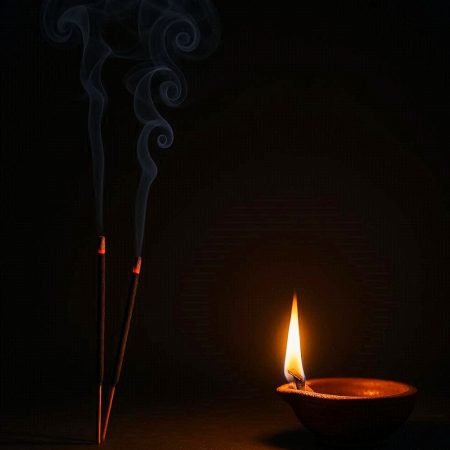Ei korechho bhalo, nithur he is a soulful prayer to God, embracing suffering as divine grace that awakens the heart, dispels darkness, and leads the soul towards light. AK Nanda translates this immortal Tagore song from Geetanjali’s ‘Puja parjaay’.

Nithur he, ei korecho bhalo
You have done this well
Oh, merciless, so well
Emni kore hridoye mor
teebro dahan jaalo – nithur he
May you thus raise in my heart
the sharp burn of fire, oh, merciless
Amar e dhoop na podale
gondho kichhui naahi dhaale
My life, like an incense stick
emits no fragrance unless it burns
Amar e dweep na jaalale
dei na kichhui aalo
Nor does it shed light
until it is set alight
Jokhon thaake aucheytaney,
e chitto amar
When my mind
lies in stupor
Aaghat shey je porosh tobo,
shei to puroshkaar
The hurt you inflict is your touch
That is my reward
Andhokare mohe laaje
chokhe tomay dekhi na je
In the darkness, in my reticence
My eyes do not see you
Bojre tolo aagun korey
aamar joto kalo
Burn as fire, in your strike of lightning
All my dark ignorance
About this song, from Geetabitan:
Parjaay: Puja (223)
Upa-parjaay: Dukkha
Taal: Ektaal
Written on: 1910 (4 Asharh 1317)
Collection: Geetanjali
Swarabitan: 38
Notation by: Surendranath Bandopadhyay / Bhimrao Shastri
Ei korechho bhalo, nithur he (Dadar Kirti, 1980) Rabindranath Tagore / Rabindranath Tagore / Hemanta Mukherjee
In Bangla Script
More Must Read in English Translations in LnC
Sakhi Bhaabona Kaahare Bole — English Translation of Tagore’s Song
Rabindranath Tagore’s Chitrangada: English Translation (Part I)
Bipade More Rakkha Karo: The Prayer to Be Fearless (Translation of Tagore Song)
My Tribute To Gurudeb: Translation of Ami Choncholo He
Got a poem, story, musing or painting you would like to share with the world? Send your creative writings and expressions to editor@learningandcreativity.com
Learning and Creativity publishes articles, stories, poems, reviews, and other literary works, artworks, photographs and other publishable material contributed by writers, artists and photographers as a friendly gesture. The opinions shared by the writers, artists and photographers are their personal opinion and does not reflect the opinion of Learning and Creativity- emagazine. Images used in the posts (not including those from Learning and Creativity's own photo archives) have been procured from the contributors themselves, public forums, social networking sites, publicity releases, free photo sites such as Pixabay, Pexels, Morguefile, etc and Wikimedia Creative Commons. Please inform us if any of the images used here are copyrighted, we will pull those images down.
Nandaji. Namashkar.
I have no knowledge of Bangla. But who hasn’t heard of ‘Geetanjali’? it is an irony that when I was in College in 1952, I won two prizes in English; Essay writing and General English. One of the books presented to me was a very elegant looking Hard Bound Tagore’s Geetanjali (English). I was too young then to look deeply into it and absorb the contents. Reading your translation of “Ei Korechcho” this morning is for me the right time as such thoughts naturally occupy one’s mind at this age. I am also happy that this gave me an opportunity to look into Tagore Literature and its deep influence on Poetry.
Thank you.
Rajan Ji
I’m extremely grateful for your comments on my translation of Tagore’s poem of Geetanjali “Ei Korechho Bhalo”. I had to do this on the insistence of my daughter Antara, and as I started doing this, I found myself inadequate to the task, but kept on trying as best as I could. You have read it and liked it, it is my reward.
Thank you